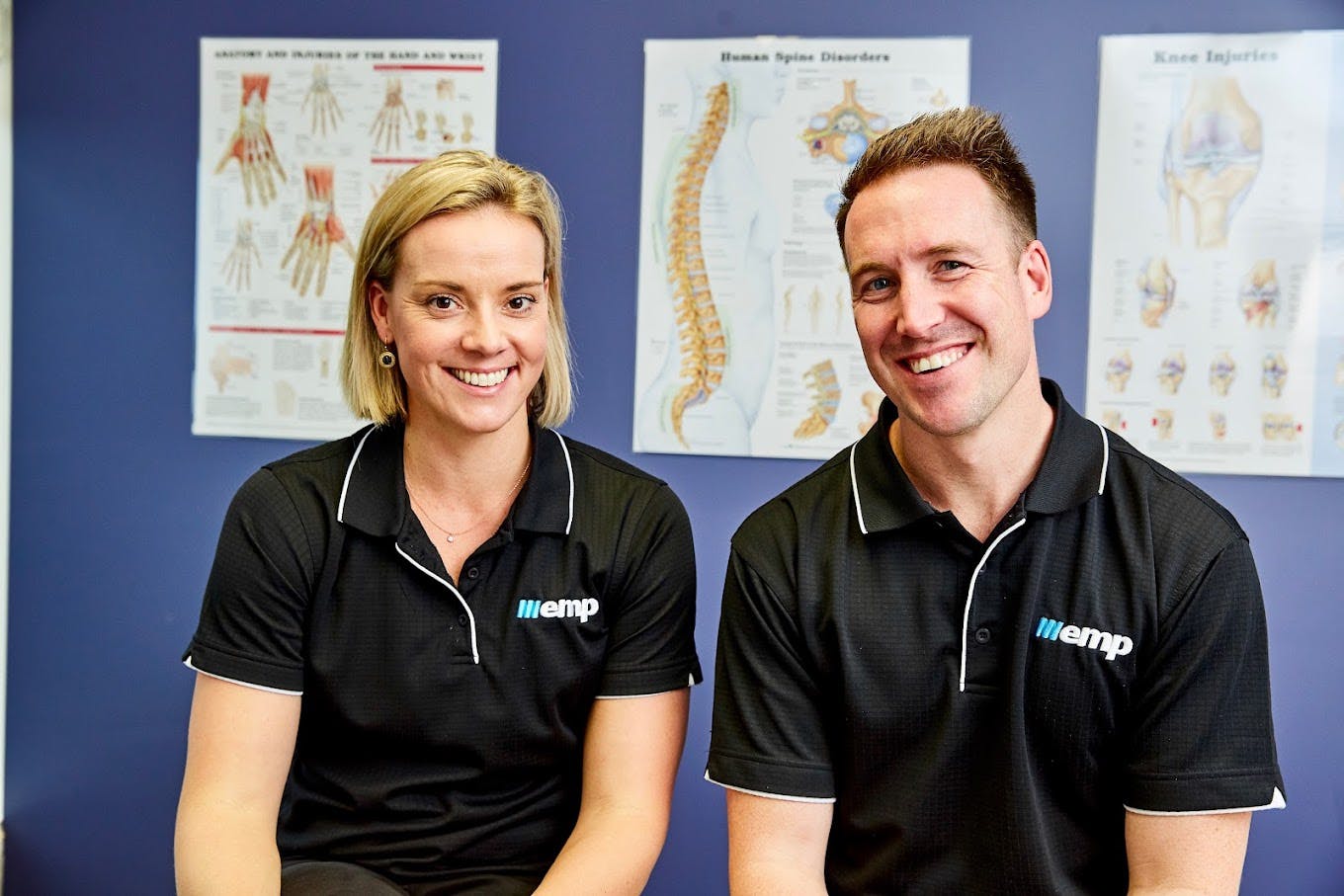December 06, 2023
Why Exercise Physiology?


In the realm of healthcare and wellness, various disciplines play a crucial role in helping individuals regain and maintain their physical health and overall well-being. Three such disciplines, Exercise Physiology, Physiotherapy, and Occupational Therapy, often work in tandem to provide comprehensive care.
Each have their unique strengths and focuses. However, they are often confused with the specific services and benefits they provide. The following will provide information on differentiating the often-confused Exercise Physiology service from Physiotherapy and Occupational Therapy.
An Exercise Physiologist is able to assess and provide rehabilitative exercise across the lifespan to the following conditions on the disability spectrum:
- Chronic/acute musculoskeletal and spinal cord injuries.
- Developmental disorders: ADHD, Autism spectrum disorder, Cerebral palsy, Hearing loss, Intellectual disability, Learning disability and Vision impairment.
- Acquired Brain injuries and Intellectual disability.
- Genetic Disorders: Down syndrome, Cystic fibrosis, Huntington's disease, Muscular dystrophy.
- Autoimmune disorders: Rheumatoid arthritis, Multiple Sclerosis, Lupus, Ankylosing spondylitis, Type 1 Diabetes.
- Cardiovascular and Metabolic disease: Stroke, high blood pressure, heart attack, Type 2 diabetes.
- Mental health disorders: Depression, Anxiety, Psychosis, Bipolar Disorder, Post-Traumatic Stress Disorder (PTSD), Schizophrenia, Eating Disorders, Disruptive behavior and dissocial disorders, Neurodevelopmental disorders.
When developing suitable exercise programs, an Exercise Physiologist will closely monitor vital signs, educate individuals on self-monitoring, pacing, and symptom management techniques during physical activity. The overall goal of Exercise Physiology is to improve independence through improving the function of the human body. Benefits are not just limited to physical function but can also be seen in improvements in confidence, behavior, mood and a reduction in future disease risk.
Choosing the Right Discipline.
Selecting the appropriate discipline for a client with a disability often depends on their specific needs and goals:
- Exercise Physiology is ideal for individuals seeking strength and fitness improvements, with an
emphasis on long-term health and independence across the disability spectrum. - Physiotherapy is beneficial for addressing pain, managing post-operative recovery, and early-stage
rehabilitation of specific injuries or medical conditions. Ideal when manual therapy is required. - Occupational Therapy excels in enhancing daily living skills (self-care, home access etc), addressing
cognitive impairments, and recommending adaptive strategies or equipment.
Exercise is the key for unlocking mobility!
Exercise Physiology, as a field, specialises in designing and implementing tailored exercise programs for individuals with a disability. These programs are created with a keen understanding of the specific challenges and capabilities of each individual and can be adapted. By targeting muscle groups, improving range of motion, and enhancing overall strength and endurance, Exercise Physiologists work towards optimizing mobility and function. In cases of disabilities, progressive rehabilitation is key to long-term success. Exercise Physiologists are adept at developing structured programs that gradually build strength, coordination, and endurance over time. This progressive approach helps individuals adapt to their disabilities and gradually regain function, ultimately leading to improved overall mobility. Physiotherapists and Occupational Therapists utilise progressive rehabilitation techniques, however, they often focus on different aspects of rehabilitation (such as manual therapy or the use of assistive devices to improve activities of daily living) rather than the comprehensive approach of Exercise Physiology to exercise.
The focus is on long term independence.
While Physiotherapists and Occupational Therapists certainly aim to improve independence, their focus may be more directed towards specific tasks or immediate functional goals.
Exercise Physiologists conduct thorough assessments of an individual's functional capacity, taking into account factors like muscle strength, cardiovascular endurance, joint flexibility and the specific needs of the disability. An exercise program from an Exercise Physiologist may not resemble a conventional program. This holistic evaluation allows them to create exercise programs that directly address the unique challenges posed by the disability. For example, a child with autism will have their exercise program have large elements of play that target specific motor deficiencies.
By considering the individual as a whole, Exercise Physiologists can identify and target specific areas that require attention. By developing strength, coordination, and endurance, Exercise Physiologists empower individuals to perform daily activities with greater ease and autonomy. This increased independence not only boosts confidence and improves mental health but also enhances overall quality of life.
Conclusion.
In many cases, a combination of these disciplines can provide a holistic approach to recovery and improvement in the lives of individuals with disabilities. However, for those seeking a comprehensive, targeted approach to rehabilitation focusing on strength, endurance, mobility, coordination and long-term independence, Exercise Physiology should not be forgotten.
Looking for an NDIS provider?
Kismet can help you find the best health service or NDIS provider to support your journey.
